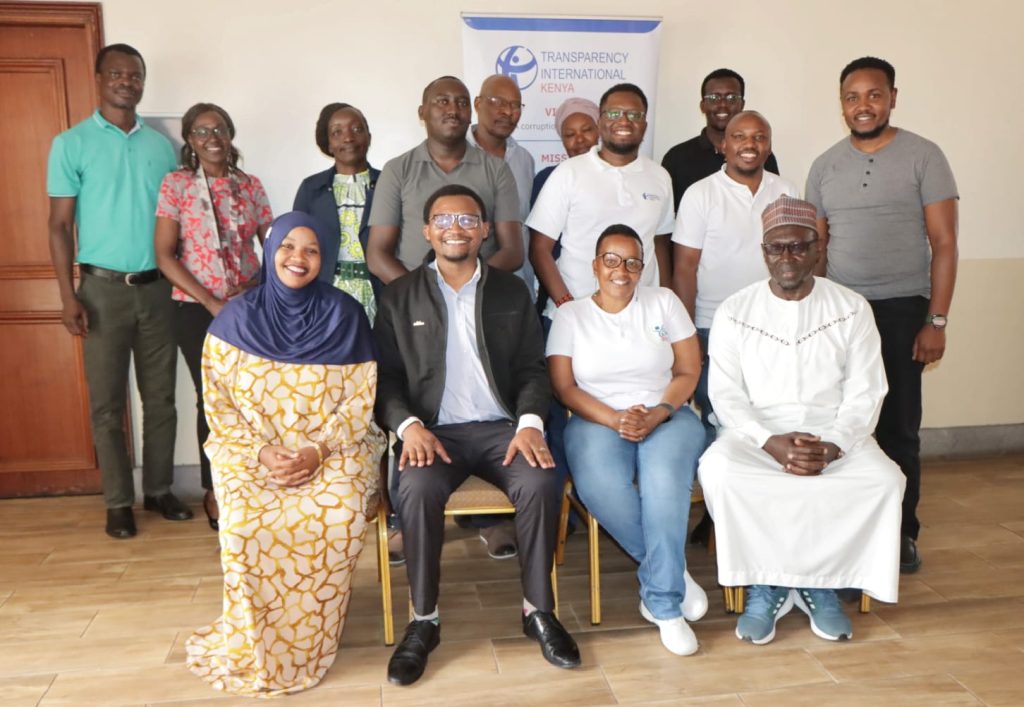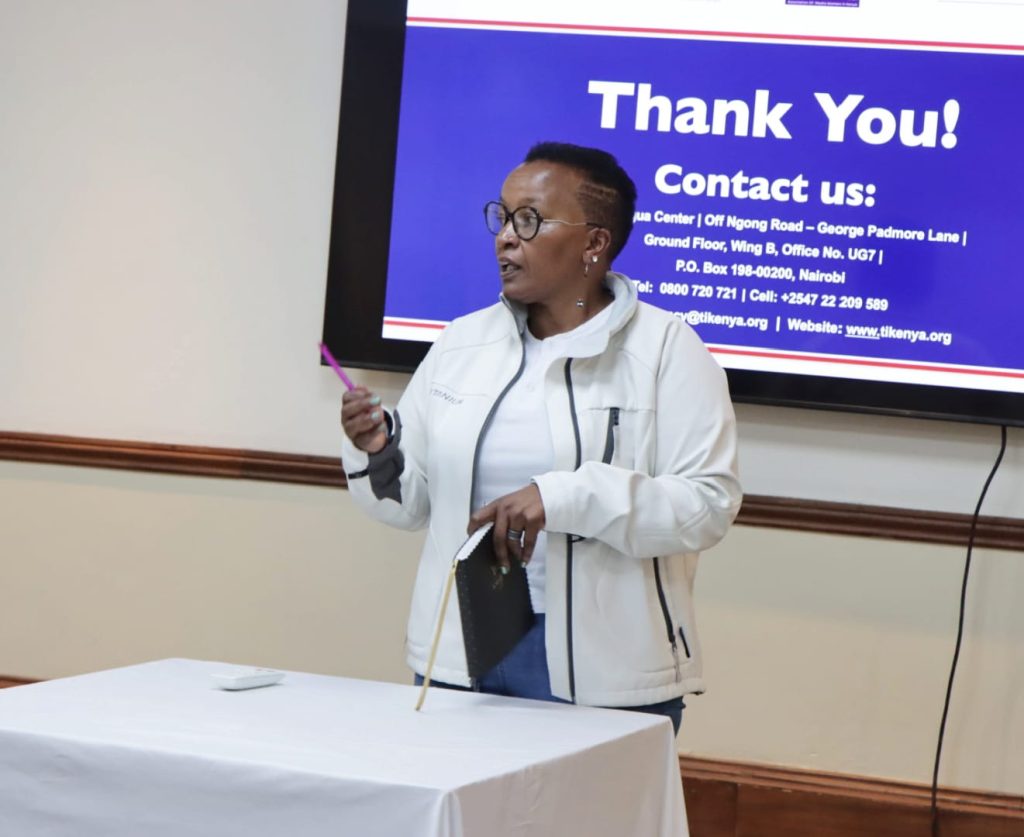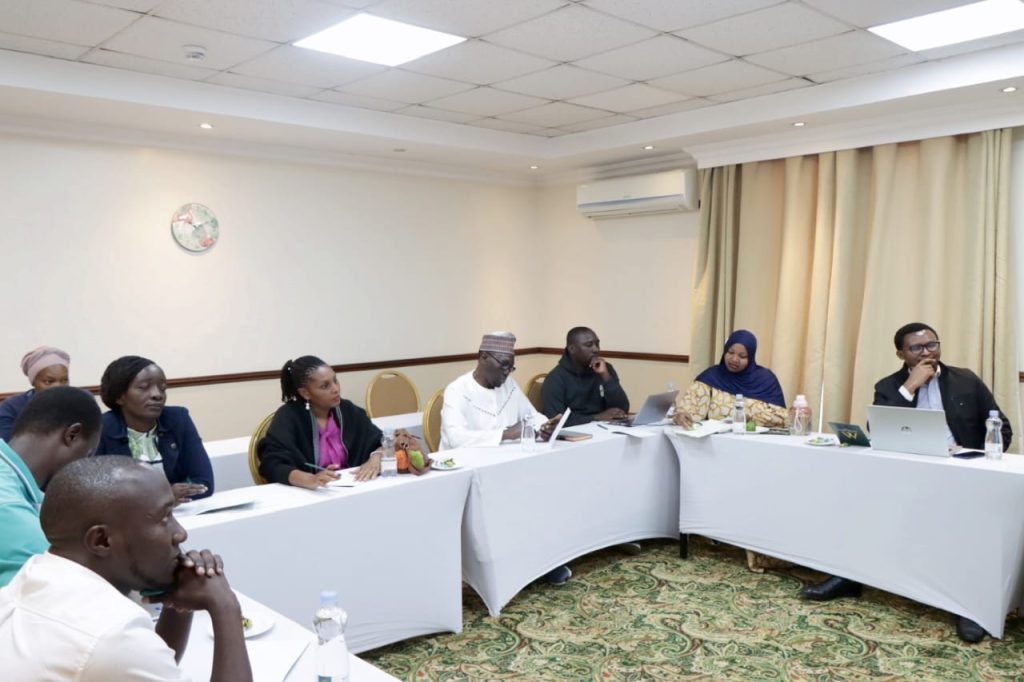
USAWA Project Concludes in Nakuru, Leaving a Legacy of Accountability
The USAWA Program, a collaborative initiative to strengthen transparency and integrity in Kenya’s health sector reached a significant milestone with the official closeout in Nakuru County. The event, bringing together key stakeholders from county government, civil society, faith-based organizations, and the media, served as a platform to celebrate tangible achievements, distill valuable lessons, and strategize on sustaining the gains made in the fight against fraud, waste, and abuse (FWA) in public health.
The USAWA Program, implemented by a consortium comprising Transparency International-Kenya (TI-Kenya), the Association of Media Women in Kenya (AMWIK), Global Compact Network-Kenya and the Inter-Religious Council of Kenya (IRCK), has been operational in Mombasa, Kilifi, Nakuru, Isiolo and Kakamega counties. The Nakuru closeout meeting marked the first in a series of county-level reflections, setting the stage for similar events in the other counties.
The meeting was not merely a ceremonial conclusion, but a strategic session focused on consolidating the project’s outcomes. It featured presentations by the project team on key achievements, reflections by stakeholders on their participation, and critical discussions on maintaining accountability mechanisms long after the program’s conclusion.
In her keynote address, Nakuru County Executive Committee Member (CEC) for Health, Hon. Roselyn Mungai, applauded the USAWA project for its critical support. She outlined the county’s comprehensive plans to build on the project’s foundation, emphasizing streamlined communication channels, including focused group discussions within health facilities, to proactively identify and solve service delivery challenges.

Hon. Mungai highlighted several county priorities in the health sector, including initiatives to boost mother and child survival rates, the end-to-end operationalization of health facilities and the adoption of new technologies for health information management. She also highlighted the vital role of religious leaders and the media in fostering community dialogue on health issues.
“The role of Public-Private Partnerships (PPPs) is crucial for the end-to-end operationalization of our health facilities and the improvement of service delivery,” stated Hon. Mungai. “Partnerships like the USAWA program are instrumental in filling existing gaps, demonstrating the power of collective action in building a more resilient and accountable health sector for the people of Nakuru.”
Echoing the CEC’s commitment, Titus Gitonga, the former Deputy Chief of Party for the USAWA project, provided a strategic roadmap for sustaining the program’s impact. He strongly urged the county government to institutionalize the assets created by the project.
“The County should rely on the already established networks of trained journalists, faith leaders, and community advocates to implement its projects. Utilize the expertise cultivated and the research developed under USAWA to guide future planning and interventions.” He spoke.
Gitonga reassured the county of the consortium’s enduring support, stating, “While the USAWA project is closing, the consortium remains committed to supporting Nakuru County on different interventions promoting transparency and accountability. This is not a goodbye, but a transition to a new phase of collaboration.”
Speaking on behalf of AMWIK, Denis Mbau, Impact and Media Liaison, detailed the program’s success in building the capacity of journalists to investigate and report on complex health sector issues. “We trained approximately 30 journalists per county on in-depth health reporting and even developed a comprehensive training manual to ensure longevity of these skills,” Mbau said.
He urged stakeholders to continue leveraging this newfound expertise. “We need to build on these efforts and tap into this knowledge to produce more impactful stories on FWA. This is the power of the media in enhancing accountability, improving citizen participation, and ultimately contributing to a healthier nation.”
Ambrose Kilonzo, Program Manager at the Inter-Religious Council of Kenya (IRCK), reflected on the profound impact of engaging faith leaders as agents of change. “The experiences, lessons, and knowledge gathered through this journey, from empowering faith leaders and communities to strengthening citizen oversight, provides a strong foundation for us to build on,” Kilonzo noted.
He emphasized that the trust and reach of religious institutions have been pivotal in raising awareness at the grassroots level, encouraging communities to demand better services and report malpractices, thereby creating a bottom-up pressure for accountability.
The reflections and strategies emerging from this meeting will not only inform future programming but also ensure that the seeds of accountability planted by the project continue to grow.
